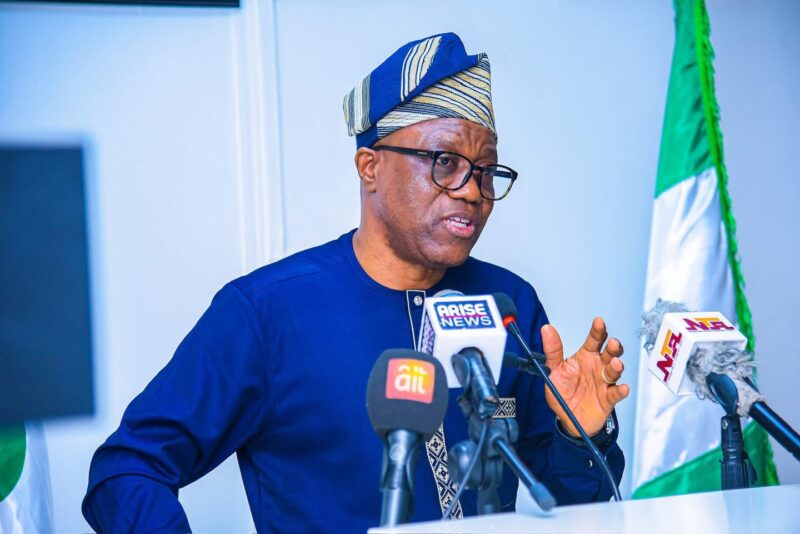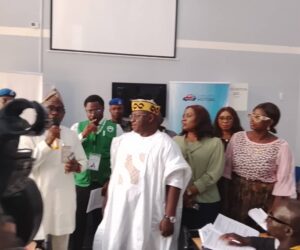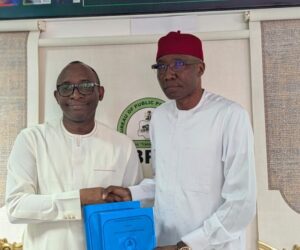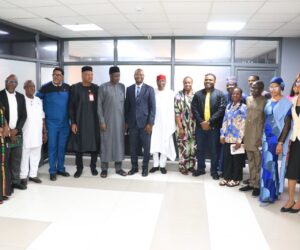The Federal Government has commenced the seventh Round of the Multiple Indicator Cluster Survey (MICS7) to inform policy and development goals, pledging a successful conduct of the survey.
The MICS7, titled “Data for Progress,” was unveiled by the National Bureau of Statistics (NBS) in collaboration with UNICEF and other development partners in Abuja on Tuesday.
Adeyemi Adeniran, Statistician-General (S-G) of the Federation said the nationwide survey was aimed at gathering detailed information on the welfare and living conditions of households.
Adeniran said the its focus was on children, women, adolescents, and other household members.
He said that the survey would provide data on various indicators, including education, health, nutrition and child protection, which would inform policy decisions and development programmes.
He said that the survey would cover no fewer than 37,000 households across the 36 states in Nigeria, including urban and rural areas.
The S-G said that following the unveiling, the next step in the exercise was training of field offices (train the trainers), which would commence on Wednesday at the state level.
According to him, data collection will commence in December and end in March 2026.
He said that one of the key innovations in the MICS7 was the ability to disaggregate data down to the local government level, providing detailed insights into the needs of different communities.
“The difference is that we will be able to have data at the local government level. In MICS6, we only had data up to the state level for all the indicators.
“For the MICS7 we have a methodology that allows us to disaggregate the result up to the local government level.
“If you combine with other sources, you can also get estimates for some key indicators up to the ward level,” he said.
Adeniran said that follow-up interviews would be conducted with selected households using the “MICS Plus platform” after the survey.
“This will help us track key indicators and gain further insights over the coming months through telephone interviews,” he said.
The S-G said that the survey would also include anthropometric measurements for children under the age of five, which would help assess the nutritional status of young children in Nigerian households.
“These are some unique things that we see in MICS7 that were not available in MICS6.
“The data collected will be used to assess the country’s progress towards achieving the Sustainable Development Goals (SDGs) and inform policy decisions at the federal and state levels.
“The survey results will also provide valuable insights into the impact of government investments in human capital development, and inform future programming and policy decisions,” he said.
He said that the final results of the survey were expected to be released in August 2026, after data collection, processing and analysis had been completed.
Adeniran said that the data would be made available to government agencies, development partners and other stakeholders to support evidence-based decision-making.
Dr Rowank Khan, UNICEF Deputy Representative to Nigeria, praised the Nigerian government for its commitment to conducting the survey for the seventh time.
Khan said that some countries had stopped doing the survey.
She emphasised the need for an accurate survey to ensure quality data for evidence-based planning for Nigerian children and citizens.
Dr Isiaka Olanrewaju, Project Director for MICS7, said that challenges of insecurity were encountered during the selection and mapping.
According to Olanrewaju, the challenges led to the exclusion of high insecurity areas in some states, including 18 Local Government Areas in Borno
The News Agency of Nigeria (NAN) reports that the MICS, which was first conducted in 1995, is a household survey developed by UNICEF.
It is to assist countries in filling data gaps for monitoring human development indicators in general, and the situation of children and women, in particular. (NAN)
Edited by Kadiri Abdulrahman








